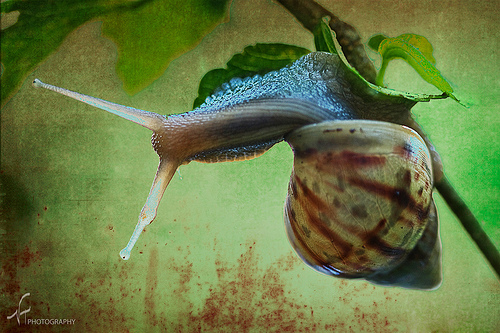
Last night I attended a talk by Nicholas Carr at The Wheeler Centre.
One of the world’s most ground-breaking and thought-provoking writers on technology and its impacts talks to Gideon Haigh. The celebrated journalist and author of The Shallows, presents his arguments about how the internet’s pervasive influence is fostering ignorance.
Nicholas Carr has a point: the internet is addictive; there’s so much to investigate and dip into, it’s unlikely you’ll be able to move from A to Z without darting off into various directions along the way, and you may not even get there at all.
The pioneering neuroscientist Michael Merzenich believes our brains are being ”massively remodelled” by our ever-intensifying use of the web and related media.
I’m not even going to go into the topic of brain rewiring, but I think that if our neural pathways can change depending on the nature of our activity, then we are still not doomed as long as we don’t turn into robots.
It is possible, though, that we might be at risk of losing our ability to focus on any one thing in a deep way, what with so much clamouring for our attention and our focus being diffused through a myriad of hyperlinks. And this is worth thinking about especially in the context of school education.
However, during Nicholas’ talk and subsequent question time, I realized that the culprit for the loss of deep concentration, defined loosely as either ‘the internet’ or technology, was being bandied about in a disconcerting way, and that it is important to define exactly which activities on the internet we are talking about when we start blaming ‘the internet’ for rewiring of neural pathways and even ignorance.
Nicholas Carr referred repeatedly to online activites such as those on Facebook, Twitter and instant messaging/chat, when he spoke of distractions which prevented us from deeper concentration and understanding. He was using a broad brush to paint a picture of what the internet has to offer, focusing on the more superficial exchanges as if this was all there was to the internet. Gideon Haigh, the presenter, jumped on the bandwagon and made a disparaging remark about Web 2.0 in education, saying that Facebook and Twitter were hardly learning – and he got an applause for that remark. It was obvious that the audience were not all on the same page. How is it that ‘the internet’ is limited to the more superficial social media? And please, inform yourselves before you judge technology as the cause of lower academic performance. Technology and the internet are only as good as the people who use them, and that is always about educated and intelligent teaching.
From my own experience, it’s clear to me that the introduction of new technologies requires support, not only how to use these technologies, but also the thinking behind pedagogy – how to use these technologies to enhance learning, not to tick off boxes for technology use. Obviously technology without the support is going to mean a backwards movement.
If the internet – and Nicholas Carr also mentioned ebooks with the distractions of hyperlinks and commenting, online research, and multimedia – if all these things are responsible for the loss of deep concentration, then why don’t we blame television for distracting us from serious novel reading, and why not blame popular music (and the radio) for taking away generations from an appreciation of more serious music and the ability to listen to a long ‘classical’ music performance? Even years ago how could we compete with Sesame Street when teaching young children in the traditional way?
If Nicholas laments the quietness which, he claims, is conducive to deeper thought and concentration, solitude even, then we should really retire to a convent and possibly an Amish community, so that there is no electricity to enable all these distractions.
I know that’s a little extreme but really – aren’t we being a little purist? Who are the people who focus deeply on reading? Are we talking about a scholarly article or book, because then we are talking about academics, not those of us who prefer to sit in front of the television for light entertainment after a long day.
As one of the guys in our computer centre said to me recently – by encouraging teachers to use the internet, aren’t you leading them along the path to addiction, and what will happen to stillness?
I think ‘stillness’ disappeared long ago even with the advent of radio and television. Yes, modern technologies are more mobile, more interactive, more engaging, but aren’t we in control of our online behavior? And if not, we should be. Pick out the wheat from the chaff, or teach yourself to do it. And if you want stillness, perhaps you should consider monasticism.
So Nicholas, before you say that what we need is money going into good teachers instead of into technology in education, please do your homework. Why should the two be mutually exclusive? We have always needed good teachers but we also need teachers who prepare kids for their world. And like it or not, that world is connected. More than ever we need to understand what engages young people and how they learn and socialize, so that we realize the power of social learning. Not because we think Facebook is the answer but because we think Skyping a class from the other side of the world and engaging in authentic conversation is more engaging and informative than reading from a textbook. Because we think that choice and hands-on creativity is more productive than passive learning. Because we find experts all over the world, and not just in the teacher who happens to be standing in front of the class.
I was amused that Carr quoted a 6th century bishop, Isaac of Syria, when he said that our furtive internet behavior was responsible for the permanent loss of the capacity for dream-like concentration:
“With prolonging of this silence,” wrote Isaac, “the turmoil of memories is stilled in my heart, ceaseless waves of joy are sent me by inner thoughts, beyond expectation suddenly arising to delight my heart.”
Bishop Isaac of Syria was a monk, an ascetic. The silence he speaks of is no doubt the silence that comes with private prayer and monastic isolation. Should we then go back to eating in silence while we listen to the readings of the lives of saints?
Finally, Carr discovers shocking statistics about multi-taskers. New research shows that multi-tasking results in poor comprehension. I say there is a difference between multitasking well and dividing your attention between too many things and not doing any of them well. Definitions, people! Let’s not be sloppy with our definitions, let’s be specific when we judge an activity such as multitasking, or something like ‘the internet’. It’s just as easy to blame the internet as it is to blame society. As Alison Croggon says
The internet is whatever we make it. It isn’t an abstraction: it’s the collective creation of millions of individual human beings.
To conclude, if Nicholas Carr has decided to take a break from being connected 24/7, then rejoined online life after discerning what was valuable and what wasn’t, then isn’t this just part of the evaluative process we should all be going through? Aren’t we doing that already? As teachers, isn’t that part of our job in forming critical thinkers?
I am reminded of the episode about ‘the Internet’ on the IT Crowd. Seems appropriate for today’s post.
[youtube=http://www.youtube.com/watch?v=iRmxXp62O8g]
Nicholas Carr’s latest book, The Shallows, is worth reading – or skimming…



